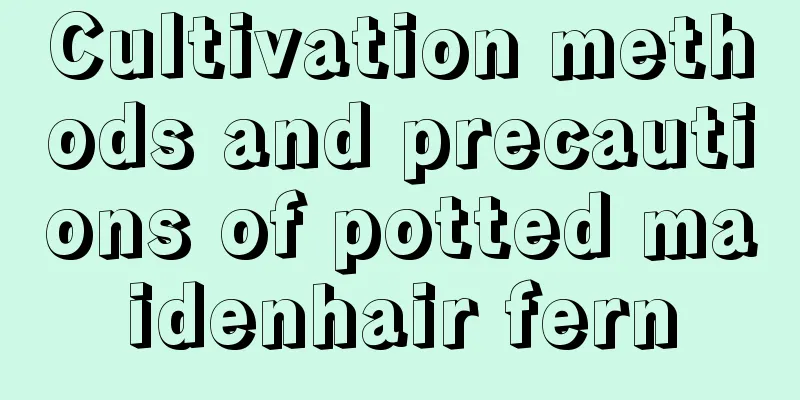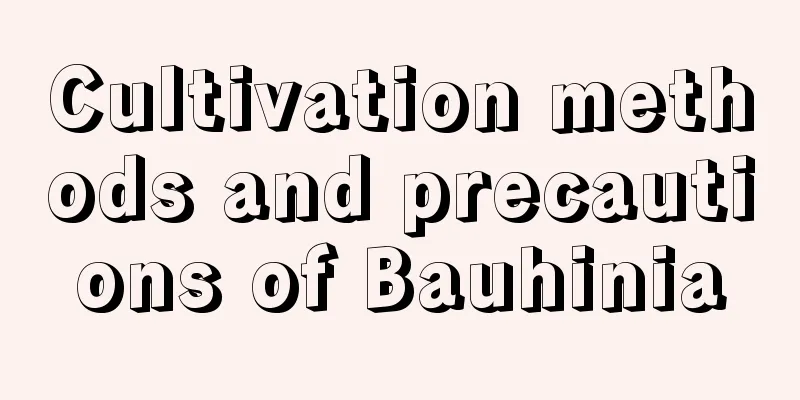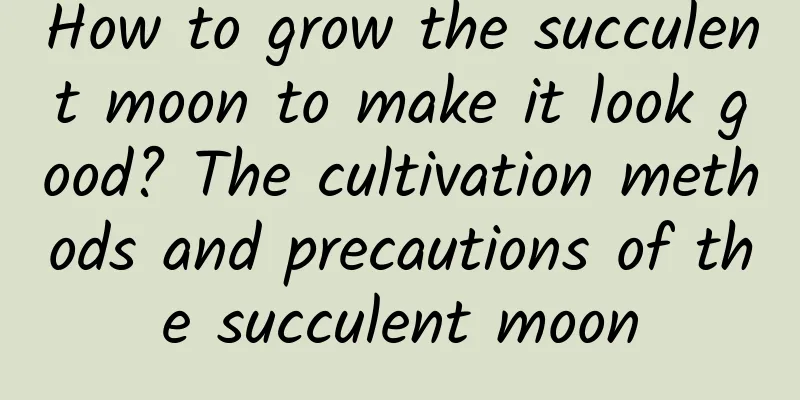Cultivation methods and precautions of potted maidenhair fern

1. Breeding methods1. Soil: It has high requirements for soil, and loose soil is needed to facilitate the plant to take root. It is best to use soil with good drainage so that it is not easy to cause water accumulation and root rot due to water accumulation. 2. Light: The growth of plants cannot be separated from light, and the maidenhair fern is the same. However, it does not require much light. It is enough to give it scattered light for a period of time every day. 3. Temperature: The temperature must be above 10℃ and cannot be lower than this temperature, otherwise the plants will be frozen. Maintain a good temperature and avoid fluctuating, as this will affect the growth of plants. 4. Water and fertilizer: Give more water during the plant growth period, and give appropriate amount of water during the slow growth period, but not too much. Apply fertilizer frequently but apply less fertilizer each time. 2. Precautions1. The branches and leaves may die or rot, so you need to prune them in time to prevent them from spreading to other branches. 2. When the light is strong at noon, place the plants in semi-shade. |
<<: Cultivation methods and precautions of potted honeysuckle
>>: Cultivation methods and precautions of golden diamond potted plants
Recommend
What is chicken feather vegetable
What is chicken feather vegetable Chicken feather...
How to grow mint
one, Prepare the Soil To prepare loose and breatha...
How to grow Staghorn fern
Water management for Staghorn fern Staghorn fern ...
How to sow peach blossoms?
1. Sowing time Peach blossom sowing is usually ca...
When can I start planting tomatoes?
Tomatoes are loved by people for their rich nutri...
How to repot and prune potted hydrangea
Repotting method Potted hydrangeas usually need t...
The correct way to water Dendrobium, can I spray the leaves when watering?
1. How to water 1. Spring: Spring is the season o...
What are the benefits of growing longevity flowers at home
1. Feng Shui Effect The name of this flower comes...
When is the best time to divide the seedlings of Clivia
Time for transplanting Clivia seedlings When is t...
How to prune Pteris fern? Pruning time and method
Pteris fern pruning time Autumn is the best time ...
How to prune pepper trees? Pruning time and correct method
Pepper tree pruning time It is generally more app...
How to change soil and pot of Australian fir
Time to repot Australian fir The suitable time to...
What is the reason why wheat leaves turn yellow and dry during the seedling stage?
Wheat has a wide range of uses and is present in ...
Onion Planting Time and Method Cultivation Technology and Management
Onion Planting Time Onions are planted in autumn,...
Daily management of dormant flowers in winter
Pay attention to the room temperature During the ...









